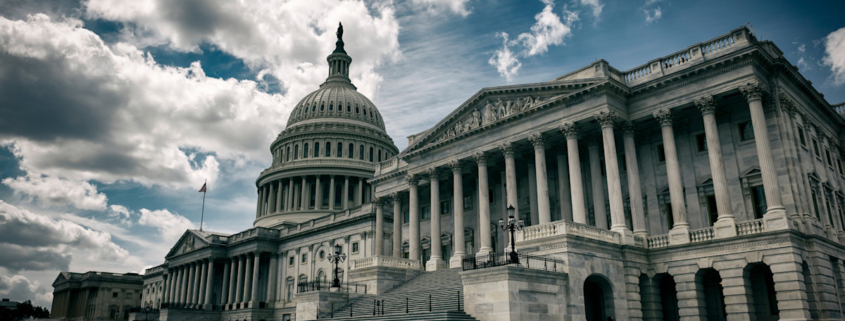A government shutdown seems likely — will it affect real estate?
The industry might not feel a direct impact, but a shutdown could intensify economic concerns that have slowed market activity for months. Plus: Fed, FHFA news.
Key points:
- Though a government shutdown may not immediately affect home sales, it could heighten economic concerns and delay a housing market rebound.
- At the Fed, officials are divided on future rate cuts, while Fed Gov. Lisa Cook has asked the Supreme Court to deny the president’s request to fire her immediately.
- Also in D.C., the FHFA has shuttered an equitable housing advisory committee and the SEC is considering an earnings report rule change.
An Oct. 1 federal government shutdown seems increasingly likely — and while it wouldn’t stop some people from buying and selling homes, the economic and psychological impacts could make it harder for real estate to get back on track.
In other news out of Washington, D.C., uncertainty persists at the Federal Reserve over future rate cuts and the body’s independence, while the Federal Housing Finance Agency (FHFA) is terminating an equitable housing advisory committee, and the SEC will consider a rule change on earnings reports.
What a government shutdown could mean for real estate
If lawmakers can’t agree on how to fund the government before the Sept. 30 deadline, millions of federal employees will stop receiving their paychecks and a variety of agencies will go idle.
But many programs tied to real estate — including Fannie Mae, Freddie Mac, HUD and the VA — will continue operating, though possibly at reduced levels, and past shutdowns have shown that home sales are largely unaffected.
In a survey by the National Association of Realtors, 75% of members reported no impact on contract signings or closings during previous shutdowns, though 11% did report effects on current clients and another 11% reported effects on potential clients. The most common impact in those cases was that the buyer opted not to buy because of general economic uncertainty.
A shutdown could exacerbate existing economic woes
That uncertainty, and the wider economic impacts, are bigger concerns for the already sluggish market. Compared to previous shutdowns, this one could be more damaging to the economy, according to Redfin Economist Chen Zhao.
With President Donald Trump already suggesting mass layoffs in the event of a shutdown, “it’s possible we could see more of a direct impact this time,” Zhao said in an email. “Financial markets might react more if something unusual like that were to occur, which could create a volatile rate situation and more nervous buyers if the stock market were to drop.”
Mortgage rates tend to drop during a government shutdown, so it’s possible that 30-year rates, which ticked up slightly this week, could fall under 6%. But those who are worried about their jobs aren’t likely to buy houses, even if rates do decline.
Meanwhile, key economic data isn’t produced during a shutdown, which means the Fed’s final monetary policy decisions of the year could be tougher to predict.
Fed divided on additional rate cuts
Shutdown or no shutdown, Fed Chair Jerome Powell has maintained his stance that any future Fed actions will depend on the latest economic data. As of late September, rising inflation paired with a weakening labor market has left the central bank with “no risk-free path,” he said in a Sept. 23 speech, emphasizing that “our policy is not on a preset course.”
While analysts have predicted two more rate cuts this year, Fed Governor Michelle Bowman, who urged action months before the Fed’s first short-term interest rate cut of 2025, said on Sept. 25 that she believes three cuts total this year is still possible.
Newly confirmed Fed Governor Stephen Miran also said this week that he believes “the appropriate fed funds rate is in the mid-2 percent area, almost 2 percentage points lower than current policy.”
Fed independence ‘eviscerated’?
Another unknown for the Fed? The fate of Fed Governor Lisa Cook — and the institution itself.
Trump sought to fire Cook over mortgage fraud allegations last month. Cook, who denied the allegations and has been neither charged nor convicted of any crime, sued to keep her job days later. After an appeals court allowed Cook to retain her position while her lawsuit proceeds, Trump asked the Supreme Court to review the ruling.
If the U.S. Supreme Court allows Trump to immediately fire Fed Governor Lisa Cook, the move would “eviscerate” the central bank’s independence, Cook’s lawyers argued in a Sept. 25 court filing.
Several former Fed chairs, Council of Economic Advisers chairs and Treasury secretaries who served under both Democratic and Republican administrations signed a Sept. 25 legal brief discouraging the Court from allowing such action, arguing that it “would expose the Federal Reserve to political influences, thereby eroding public confidence in the Fed’s independence and jeopardizing the credibility and efficacy of U.S. monetary policy.”
FHFA pulls the plug on equitable housing committee
On Sept. 23, FHFA Director Bill Pulte announced his decision to terminate the Advisory Committee on Affordable, Equitable and Sustainable Housing, effective immediately.
The committee was created in 2022 to advise the FHFA on barriers to housing access and other related topics, according to the committee’s charter.
Pulte said the FHFA is instead “focused on the safety of the market and restoring the American Dream!”
An end to quarterly earnings reports?
Publicly-traded companies have provided investors with updated earnings reports every quarter since 1970 — but that may soon change, according to Paul Atkins, chairman of the SEC, who suggested that cadence “emphasizes a short-term type of thinking.”
Atkins addressed the possibility during a Sept. 19 appearance on CNBC’s “Squawk Box” days after Trump proposed reverting to a semiannual reporting schedule. “To propose a change in what our rules are now I think would be a good way forward,” Atkins said.





Leave a Reply
Want to join the discussion?Feel free to contribute!